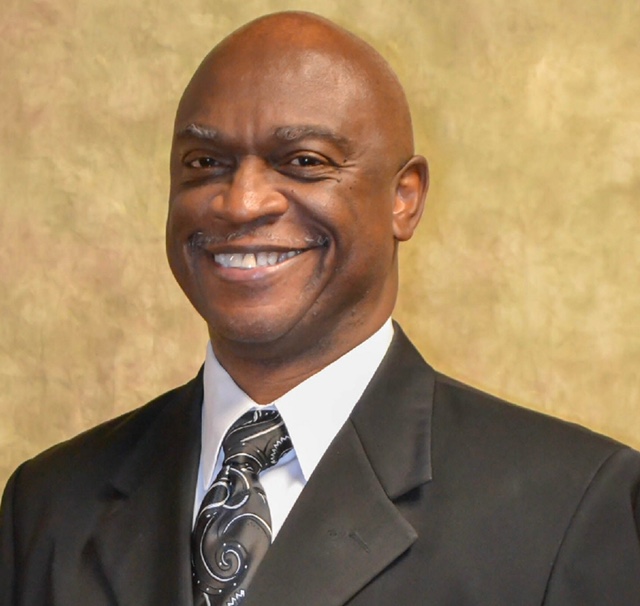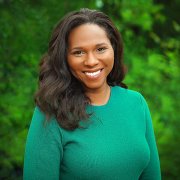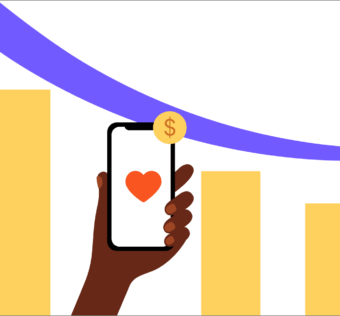The Black Church & Black History in America
As we celebrate Black History Month, the role of the church in African American communities cannot be overstated. For centuries, the church has provided spiritual guidance and leadership, but has also delivered social services to improve education, economic mobility, health and wellness in Black communities.
Furthermore, churches have played a pivotal role in the African American struggles for freedom and civil rights, acting as a fierce advocate and safe haven during these movements. In the aftermath of George Floyd, Breonna Taylor, Ahmaud Arbery and the nationwide protests of 2020, many churches increased their calls for social justice.

Rev. Thurmond Tillman, Pastor, First African Baptist Church
Meanwhile, as our nation continues to grapple with the impacts of COVID, Black communities have been disproportionately affected. Many Black churches have reimagined how to serve the needs of their communities during these unprecedented times.
In recognition of Black History Month, Givelify will explore the impact of the Black church. Our month long series will feature Black faith leaders and their perspective on the Black church, Black history and where we go from here. Our first guest is Reverend Thurmond N. Tillman. Reverend Tillman is the 17th pastor of the First African Baptist Church in Savannah, GA, where he has served for more than 35 years.
When you look back on American history and Black history, how would you describe the importance of the Black church?
The Black church is extremely important because it was through the Black church where most of the advances happened in the Black community. Going all the way back to the beginning, when you talk about education when Blacks were not allowed to read and write. It was through the Black church that many people learned. Also, a lot of our HBCU’s (Historically Black Colleges & Universities) were started by the Black church.
From the beginning, all the way up to now, the Black church was the life of the community. That’s where you socialized. That’s where you were able to come together and help one another.
What role do you see Black churches playing in the social justice movement?
Again, I see the Black church as being integral. It was no accident that the Martin Luther King Jr. was the Reverend Dr. Martin Luther King Jr. That Abernathy was the Reverend Dr. Abernathy. That Andrew Young was Reverend Andrew Young. So, the majority of those who were leading the effort through the civil rights movement were pastors or closely connected with the church. There were a few who were not pastors. But for the most part the leaders were pastors. And that was mostly because pastors received their salaries from the congregation and did not have to worry about getting fired from their job because of their activism. They didn’t have to worry about that because they had support from the congregation and many times were expected to be a part of the movement for the betterment of the community.
It’s just the right thing to do. As the church, it’s the moral thing to do to make sure we look out for the least, the last, and the lost.
“It’s just the right thing to do. As the church, it’s the moral thing to do to make sure we look out for the least, the last, and the lost.”
-Rev. Thurmond Tillman, Pastor, First African Baptist Church, Savannah, GA
COVID has disproportionately impacted so many communities of color. How has your church pivoted to respond and serve your community?
We’ve responded by not being a super spreader, by making sure we worship online as well as give online. We were already connected with Givelify before COVID, so it was not much of a transition for us.
We’re trying our best to get the vaccine out to our community, because we realize there is a need for that to happen. So, those who are 65 and older are signing up to come to First African Baptist to receive the first dose of the Moderna vaccination.
We’re there to comfort those who have had loved ones to pass because of COVID, and we are always in prayer for those who find themselves testing positive.
What advice would you give to other church leaders as they navigate this moment in time?
We were recently very involved, along with Bishop (Reginald T.) Jackson of the AME Church, in pushing for a Georgia hate crime bill. Georgia was one of the very few states that did not have a hate crime bill. (Georgia’s Governor Brian Kemp signed a hate bill into law in June 2020).
So, I would always say to pastors, that is what we are called to do. We are called to look out for those who cannot look out for themselves. Those who are marginalized. So, that becomes our responsibility to care about the social needs of others.
How would you describe the state of the Black church today? How would you like to see it evolve over the next 10 years?
I would say it’s strong and getting stronger. The reason I would say it’s strong is because of what we have been through in our last administration in the White House. People who thought we no longer needed the Black church or the activism of groups like the NAACP and others, began to see first-hand that racism is alive and well. I do believe the salvation of the nation lies in the Black church. If we’re going to teach what Jesus taught, we must love our enemies and do good unto those who may not be doing good unto us. By doing that, those that have been lost can be found and those full of hate can find love. I see the Black church as becoming a beacon of love and of hope in our communities for all people to get where God wants us to be.
History of First African Baptist Church
First African Baptist Church is the oldest Black church in North America, organized in 1773 and constituted in 1777. Located in Savannah, GA, First African Baptist Church has been a place of leadership and service since its inception. The church served as the largest gathering place for blacks and whites to meet during the time of segregation.
The civil rights museum in Savannah, GA bears the name of former pastor, Rev. Dr. Ralph Mark Gilbert, honoring his courageous work during the Civil Rights movement in the South. First African Baptist Church established the first federal credit union housed in a church in May 1954. The credit union continues to serve members of the church and their families by providing savings and credit accounts.
Reverend Emmanuel King Love, 6th Pastor, led the movement to establish Savannah State University, formerly known as Georgia State Industrial College for Colored Youth. Rev. Love also played a big role in the establishment of Morehouse College in Atlanta, GA; Paine College in Augusta, GA.
Reverend Thurmond N. Tillman currently serves as the 17th pastor of the church, beginning his tenure in 1982. He also serves on many organization boards that help empower the people of Savannah, GA.
“I can’t tell you how grateful I am for Givelify.”
-Rev. Thurmond Tillman, Pastor, First African Baptist Church, Savannah, GA
First African Baptist Church has used Givelify for online giving since 2014. Tillman has been a long-time Givelify advocate, encouraging other faith leaders to adopt online giving in their church. “Most pastors in Georgia thought I worked for Givelify,” he says with a laugh. “Since COVID, many of them have able to see what I was talking about all this time (about the importance of online giving).” Pastor Tillman also uses Givelify for his personal giving. “My wife and I try to do all of our giving through Givelify because at the end of the year, we get a (giving) statement from Givelify that includes everything.” Join Reverend Tillman and do more good in your community with Givelify.




